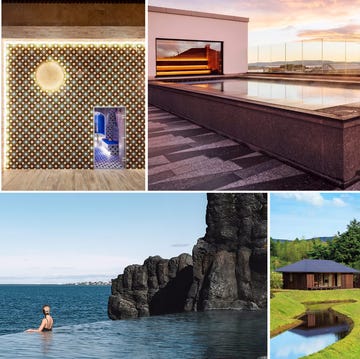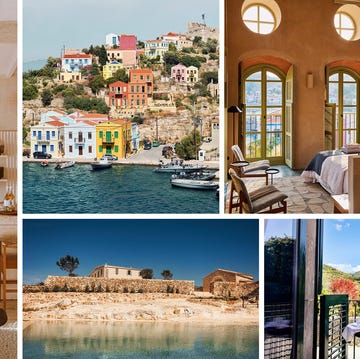In 2019, after leaving the gallery she was running in Brooklyn, Jennifer Houdrouge set up shop in Dakar. “The scene here is so exciting and youthful, and I was able to design a new model of an art space,” she says. She describes Selebe Yoon, her gallery and arts residency located in a 10,000-square-foot space in a 1950s building, as a “hybrid art project,” one that was “far more doable in Dakar than New York or London.”
Over the past few years, Senegal’s capital city, a vibrant port on the Cape Verde Peninsula, has become a standout international art scene, thanks in part to the impact of Dak’Art, one of the longest-running art biennials in Africa. It’s where acclaimed painter Kehinde Wiley set up his prestigious artists’ retreat, Black Rock Senegal, a sprawling modern beachside complex designed by Senegalese architect Abib Djenne in 2019. Along with the flourishing art capitals of Lagos and Accra, Dakar is seen as part of a “New African Renaissance.” In 2022, it was the site of Chanel’s Métiers d’Art show, a sign of the city’s growing international influence.
What makes Dakar’s creative environment so dynamic, notes Senegalese artist Alun Be, is how gallerists and curators are breaking down the white-wall concept of exhibiting art and instead celebrating—and fostering, through residencies—the work of contemporary artists in every corner of the city. (Be describes the scene in Dakar as so well organized and socially conscious that “if it was a political party, I would vote for it.”) Women-led collectives, such as Les Petites Pierres, often bring their happenings to the street. Partcours, a pioneering independent art festival, animates the city each autumn.
Other spaces, like OH Gallery, founded by Océane Harati in 2018, are scattered throughout the city in unique architectural landmarks. Harati operates three spaces within the iconic midcentury Building Maginot in Dakar’s historic center. “I tried to take out all the negative experiences of a Western gallery—the elitism and the silence and the commercialism—and cater to everyone,” she says of her gallery’s mission.
Similarly, RAW Material Company, based in a residential area of Grand Dakar, is less a commercial venture than a creative laboratory. A library, gallery, and residency founded in 2008 by powerhouse curator Koyo Kouoh, currently the executive director at the Zeitz Museum of Contemporary Art Africa in Cape Town, its mission is to train the next wave of curators to empower African artists and put them in the center of the social and political conversation.
In between gallery hopping, Trames, a four-story gallery, club, and restaurant overlooking Independence Square, is the place to stop and refuel and mingle with the creative set. The intimate Seku Bi or Hôtel Le Djoloff both serve as informal hubs for in-the-know visiting collectors, gallerists, and artists.
This article was originally featured in the December/January 2022 Issue of Harper’s Bazaar
















